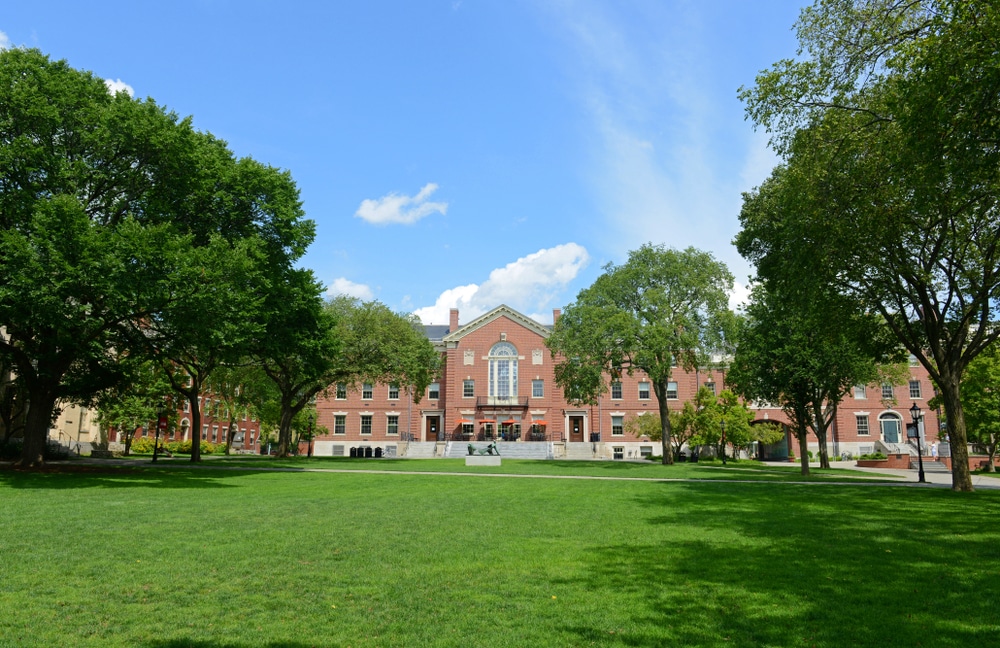Exploring Clubs at Brown: A Guide for Aspiring College Students
Hello, future Brown University students! As you embark on your college journey, you may be wondering what extracurricular activities await you on campus. Fret not, as Brown boasts a thriving club scene with over 400 student-run organizations that cater to a diverse range of interests, hobbies, and passions. As you consider joining the ranks of Brown’s diverse and accomplished student body, prepare to be immersed in a vibrant campus community that fosters personal growth, intellectual exploration, and the pursuit of individual passions.
What is the importance of clubs at Brown?
To start with, what is the significance of clubs at Brown? Clubs at Brown University play a significant role in shaping the overall college experience for students. They provide a platform for personal growth, academic enrichment, and social interaction, as well as fostering a sense of community and belonging.

Here are some key reasons why clubs at Brown are so important:
- Personal development:Clubs offer opportunities for students to enhance their skills, broaden their perspectives, and discover new interests. By participating in club activities, students can develop leadership, teamwork, communication, and problem-solving abilities that will serve them well beyond their time at Brown.
- Academic enrichment: Many clubs at Brown have an academic focus, allowing students to delve deeper into their chosen fields of study or explore new subjects outside the classroom. These clubs often host guest speakers, workshops, and conferences, providing valuable learning experiences and networking opportunities.
- Social connections: Clubs provide a welcoming environment for students to meet like-minded individuals and form lasting friendships. Participating in clubs allows students to connect with others who share their passions and interests, creating a strong sense of camaraderie and support.
- Community engagement: Many clubs at Brown are centered around community service and social action, encouraging students to engage with local and global issues. By getting involved in these clubs, students can make a positive impact on the lives of others while also gaining a deeper understanding of the world around them.
- Campus culture: The diverse range of clubs at Brown contributes to the university’s vibrant campus culture. Clubs organize events, performances, and exhibitions that enrich the campus experience and showcase the many talents and interests of Brown students.
In summary, clubs at Brown University are essential in fostering a well-rounded college experience. They provide opportunities for personal growth, academic enrichment, social connections, and community engagement, and contribute to the university’s lively campus culture.
What are the types of clubs at Brown?
What are the different kinds of clubs at Brown? Brown University offers a diverse array of clubs and student organizations, catering to a wide range of interests and passions. These clubs can generally be categorized into several types:
Academic and Professional Clubs
These clubs focus on specific fields of study, career paths, or professional development. They often host guest speakers, workshops, and conferences, providing opportunities for networking, skill-building, and academic enrichment.

Examples include:
- Brown Debating Union (BDU):BDU is a competitive debate team that participates in parliamentary debate tournaments at both the national and international levels. The club offers training and practice opportunities for members to hone their argumentation and public speaking skills.
- Brown Computer Science Club: This club is for students interested in computer science and technology. It hosts workshops, guest speakers, and hackathons to help members develop their programming skills, learn about new technologies, and network with industry professionals.
Arts and Culture Clubs
These clubs celebrate various forms of artistic expression and cultural appreciation, such as theater, dance, music, film, literature, and visual arts. Members of these clubs often participate in performances, exhibitions, and events that showcase their talents and passions. Examples include:
- Brown University Gilbert and Sullivan (BUGS): BUGS is a student-run theater group that performs the works of Gilbert and Sullivan, as well as other light operettas. Members can participate in all aspects of the productions, from acting and singing to set design and stage management.
- Brown Poetry Club: This club provides a space for poets and poetry enthusiasts to share their work, receive feedback, and explore different poetic styles. The club also hosts poetry readings and workshops featuring guest poets.
Community Service and Social Action Clubs
These clubs are dedicated to making a positive impact on the local and global community through volunteer work, advocacy, and philanthropy. They tackle a wide range of social issues, from environmental conservation to refugee support, and offer students opportunities to engage in meaningful service projects.

Examples include:
- Brown University Swearer Center: The Swearer Center connects students with community engagement opportunities in areas like education, health, and economic justice. Through various programs and partnerships, students can participate in service learning, community research, and social innovation projects.
- Habitat for Humanity at Brown University: The club partners with the local chapter of Habitat for Humanity to build affordable housing for families in need. Members participate in construction projects, fundraising, and advocacy efforts.
Sports and Recreation Clubs
These clubs cater to students interested in staying active and participating in various sports and recreational activities. They range from competitive sports teams to casual fitness clubs and outdoor adventure groups, offering a variety of ways for students to maintain their physical well-being and connect with fellow sports enthusiasts. Examples include:
- Brown University Quidditch Team: Inspired by the fictional sport from the Harry Potter series, the Quidditch team at Brown combines elements of rugby, dodgeball, and tag. The team competes against other colleges in regional and national tournaments.
- Brown Climbing Club: This club provides a space for students interested in rock climbing to learn new techniques, improve their skills, and participate in climbing trips. The club welcomes climbers of all skill levels, from beginners to advanced.
Cultural and Identity-based Clubs
These clubs celebrate the diverse backgrounds and identities of Brown students, providing a supportive space for members to connect, share experiences, and participate in extracurriculars that showcase cultural engagement. They also promote awareness and understanding of different cultures, fostering a more inclusive campus community. Examples include:
- Brown Organization of Multiracial and Biracial Students (BOMBS): BOMBS provides a supportive community for multiracial and biracial students to discuss their unique experiences, celebrate their diverse heritages, and engage in cultural activities.
- Brown Queer Alliance (BQA): BQA is dedicated to promoting awareness, understanding, and acceptance of LGBTQ+ individuals and issues. The club organizes events, discussions, and social gatherings to foster a supportive and inclusive campus environment.
Special Interest Clubs
These clubs encompass a wide variety of unique hobbies, interests, and passions, from board games and cooking to robotics and entrepreneurship. These clubs allow students to explore their interests, learn new skills, and connect with others who share their passions.

Examples include:
- Brown University Chess Club: This club welcomes chess players of all skill levels, from beginners to experts. Members can participate in casual games, tournaments, and workshops led by experienced players.
- Brown Culinary Club: This club is for students who are passionate about cooking and food culture. It offers cooking workshops, themed dinners, and culinary outings to explore the local food scene.
Student Government and Leadership Clubs
These clubs focus on promoting student advocacy, representation, and leadership development. They offer opportunities for students to engage in campus decision-making, develop leadership skills, and collaborate with faculty and administration on initiatives that benefit the broader student body. Examples include:
- Undergraduate Council of Students (UCS): UCS is the primary student government body at Brown, representing the interests of the undergraduate student body. It works on policy initiatives, organizes events, and advocates for student needs in the university administration.
- Brown Student Agencies (BSA): BSA is a student-run organization that manages various businesses and services on campus. By joining BSA, students can gain valuable experience in entrepreneurship, management, and marketing while providing valuable services to the Brown community.
This extensive range of clubs at Brown ensures that every student can find a place to explore their interests, develop their skills, and connect with a supportive community of like-minded individuals.
How to get involved in clubs at Brown?
How to get engaged in clubs at Brown? Getting involved in clubs at Brown University is an easy and rewarding process. Here are some steps you can follow to find and join the clubs that interest you:
- Attend the Activities Fair: Brown hosts an annual Activities Fair at the beginning of the academic year, where most clubs and student organizations set up booths to showcase their activities and recruit new members. This event is a great opportunity to explore the wide variety of clubs available, ask questions, and sign up for mailing lists or membership.
- Browse the online club directory: Brown maintains an online directory of all registered student organizations on its website. You can use this resource to search for clubs by category or keyword, learn about their missions and activities, and find contact information for club leaders.
- Follow clubs on social media: Many clubs at Brown have active social media accounts on platforms like Facebook, Instagram, and Twitter. By following these accounts, you can stay updated on upcoming events, meetings, and membership opportunities.
- Attend club meetings and events: Once you’ve identified clubs that interest you, attend their meetings or events to get a feel for the club’s atmosphere and learn more about what they do. Most clubs welcome new members and visitors at their meetings, which are often advertised through email, social media, or posters around campus.
- Reach out to club leaders: If you’re particularly interested in a specific club, don’t hesitate to reach out to the club leaders or members. They can provide more information about the club, answer your questions, and help you get involved.
- Join club mailing lists or online groups: Many clubs have mailing lists or online groups where they share information about their activities, events, and membership opportunities. By joining these lists or groups, you can stay informed and easily participate in club activities.
- Don’t be afraid to start your club: If you have a unique interest or passion that isn’t represented by an existing club at Brown, consider starting your own. The university provides resources and support for students looking to create new student organizations, including guidance on registering the club, securing funding, and organizing events.
Remember that it’s okay to explore multiple clubs before settling on the ones that best fit your interests and schedule. College is a time of growth and discovery, so don’t be afraid to try new things and engage with the vibrant campus community at Brown University.
What clubs are Brown known for?
What clubs are Brown well-known for? While Brown University has a diverse range of clubs, some are particularly well-known and highly regarded, either for their unique offerings, competitive accomplishments, or contributions to campus culture. Here are a few notable clubs at Brown:
Brown Political Review (BPR)
BPR is a nonpartisan student-run publication that focuses on politics, policy, and culture. The club produces a print magazine, an online platform, and multimedia content, providing an outlet for students interested in journalism, writing, editing, and graphic design to contribute to a respected publication.
Brown Entrepreneurship Program (Brown EP)
Brown EP is dedicated to fostering entrepreneurship on campus and connecting students with resources, mentorship, and networking opportunities. The club organizes events like startup competitions, workshops, and speaker series that feature successful entrepreneurs and industry professionals.
Brown University Science Olympiad (BUSO)
BUSO is a club that promotes interest in STEM fields by organizing and participating in Science Olympiad competitions. The club hosts an annual invitational tournament, drawing high school teams from across the region to compete in various science and engineering events.
The Brown Band
The Brown Band is the spirited and entertaining marching band that performs at football games, basketball games, and other campus events. Known for their quirky and fun performances, they contribute to the energetic atmosphere at Brown sporting events and help foster school spirit.
Brown Refugee Youth Tutoring and Enrichment (BRYTE)
BRYTE is a community service club that pairs Brown students with refugee youth in the Providence area for tutoring and mentorship. The club is recognized for its positive impact on the local community and its commitment to supporting refugees in their educational and personal growth.
These clubs, among many others, contribute to Brown’s vibrant campus culture and offer students unique opportunities to explore their interests, develop their skills, and make meaningful connections with their peers.
In conclusion, Brown University’s dynamic and diverse club scene is an integral part of the college experience for its students. By participating in these clubs, you’ll not only have the chance to explore your passions and interests but also develop valuable skills, make lasting connections, and contribute to the thriving campus community.
As you prepare for your college journey, AdmissionSight is here to support you in navigating the admissions process and maximizing your potential for success. Our expert guidance and personalized approach can help you unlock the opportunities that await you at Brown, where an incredible array of clubs and student organizations are ready to welcome you into their vibrant and enriching world. Don’t miss out on the chance to make the most of your time at Brown and immerse yourself in the unique and exciting experiences that these clubs have to offer. Contact us!





































